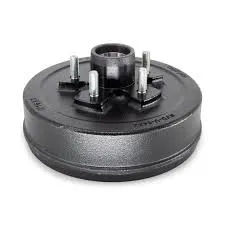
-
 Afrikaans
Afrikaans -
 Albanian
Albanian -
 Amharic
Amharic -
 Arabic
Arabic -
 Armenian
Armenian -
 Azerbaijani
Azerbaijani -
 Basque
Basque -
 Belarusian
Belarusian -
 Bengali
Bengali -
 Bosnian
Bosnian -
 Bulgarian
Bulgarian -
 Catalan
Catalan -
 Cebuano
Cebuano -
 Corsican
Corsican -
 Croatian
Croatian -
 Czech
Czech -
 Danish
Danish -
 Dutch
Dutch -
 English
English -
 Esperanto
Esperanto -
 Estonian
Estonian -
 Finnish
Finnish -
 French
French -
 Frisian
Frisian -
 Galician
Galician -
 Georgian
Georgian -
 German
German -
 Greek
Greek -
 Gujarati
Gujarati -
 Haitian Creole
Haitian Creole -
 hausa
hausa -
 hawaiian
hawaiian -
 Hebrew
Hebrew -
 Hindi
Hindi -
 Miao
Miao -
 Hungarian
Hungarian -
 Icelandic
Icelandic -
 igbo
igbo -
 Indonesian
Indonesian -
 irish
irish -
 Italian
Italian -
 Japanese
Japanese -
 Javanese
Javanese -
 Kannada
Kannada -
 kazakh
kazakh -
 Khmer
Khmer -
 Rwandese
Rwandese -
 Korean
Korean -
 Kurdish
Kurdish -
 Kyrgyz
Kyrgyz -
 Lao
Lao -
 Latin
Latin -
 Latvian
Latvian -
 Lithuanian
Lithuanian -
 Luxembourgish
Luxembourgish -
 Macedonian
Macedonian -
 Malgashi
Malgashi -
 Malay
Malay -
 Malayalam
Malayalam -
 Maltese
Maltese -
 Maori
Maori -
 Marathi
Marathi -
 Mongolian
Mongolian -
 Myanmar
Myanmar -
 Nepali
Nepali -
 Norwegian
Norwegian -
 Norwegian
Norwegian -
 Occitan
Occitan -
 Pashto
Pashto -
 Persian
Persian -
 Polish
Polish -
 Portuguese
Portuguese -
 Punjabi
Punjabi -
 Romanian
Romanian -
 Russian
Russian -
 Samoan
Samoan -
 Scottish Gaelic
Scottish Gaelic -
 Serbian
Serbian -
 Sesotho
Sesotho -
 Shona
Shona -
 Sindhi
Sindhi -
 Sinhala
Sinhala -
 Slovak
Slovak -
 Slovenian
Slovenian -
 Somali
Somali -
 Spanish
Spanish -
 Sundanese
Sundanese -
 Swahili
Swahili -
 Swedish
Swedish -
 Tagalog
Tagalog -
 Tajik
Tajik -
 Tamil
Tamil -
 Tatar
Tatar -
 Telugu
Telugu -
 Thai
Thai -
 Turkish
Turkish -
 Turkmen
Turkmen -
 Ukrainian
Ukrainian -
 Urdu
Urdu -
 Uighur
Uighur -
 Uzbek
Uzbek -
 Vietnamese
Vietnamese -
 Welsh
Welsh -
 Bantu
Bantu -
 Yiddish
Yiddish -
 Yoruba
Yoruba -
 Zulu
Zulu
Is it possible to switch from drum brakes to disc brakes on your vehicle?
Replacing Drum Brakes with Disc Brakes An In-Depth Exploration
When it comes to vehicle braking systems, one of the most significant advancements in automotive technology has been the transition from drum brakes to disc brakes. Many car enthusiasts and everyday drivers alike often wonder if they can replace their vehicle’s drum brakes with disc brakes. This article aims to explore the feasibility, benefits, and considerations involved in this potential upgrade.
Understanding Brake Systems
Drum brakes and disc brakes are two types of systems used to slow down or stop a vehicle. Drum brakes consist of a curved shell that houses the brake shoes, which are pressed against the inner surface of a rotating drum to create friction. In contrast, disc brakes utilize a flat rotor and calipers, which squeeze brake pads against the rotor to achieve the same effect. While drum brakes have been a longstanding standard, disc brakes have gained popularity due to several advantages.
Benefits of Upgrading to Disc Brakes
1. Performance Disc brakes generally provide better stopping performance. They dissipate heat more effectively, which reduces the risk of brake fade—a condition where brake performance diminishes due to overheating. This makes disc brakes more reliable during heavy braking situations, such as on steep hills or in emergency stops.
2. Maintenance Disc brakes are easier to inspect and replace. Rust and moisture are less likely to accumulate on the braking surfaces compared to drum brakes, resulting in longer-lasting components and less frequent maintenance.
3. Weight Distribution Disc brake systems tend to be lighter than drum brake systems, contributing to better weight distribution and overall vehicle dynamics. This can enhance handling and responsiveness, especially during aggressive driving conditions.
4. Aesthetics and Customization For many car enthusiasts, disc brakes have a modern and sporty appearance. Upgrading to disc brakes can enhance not only the performance but also the aesthetics of the vehicle, allowing for customization options such as colored calipers and larger rotors.
can you replace drum brakes with disk brakes

Considerations for Upgrading
While the benefits of upgrading to disc brakes may be appealing, several factors must be considered before making the switch
1. Cost and Complexity Upgrading from drum to disc brakes can be expensive. The cost includes not only the new brake components but also potential modifications to the vehicle’s suspension, wheel size, and even the brake lines. Additionally, the installation process can be complex, often requiring professional assistance.
2. Compatibility Not all vehicles can be easily converted from drum to disc brakes. It’s crucial to verify whether the vehicle’s design can accommodate such a change. Some vehicles may require an entirely new axle assembly, while others might have interchangeable components.
3. Legal Regulations In some regions, modifications to a vehicle's braking system may have legal implications regarding safety inspections and compliance with local laws. It’s important to research any relevant regulations before proceeding with the upgrade.
4. Drive Type The intended use of the vehicle must also be considered. For instance, a car used primarily for city driving may not require the enhanced performance of disc brakes, while a performance vehicle or one used for towing might benefit significantly from the upgrade.
Conclusion
Replacing drum brakes with disc brakes can be a worthwhile upgrade for improved performance, reduced maintenance, and enhanced aesthetics. However, potential costs, compatibility issues, and local regulations must be carefully evaluated before proceeding. Ultimately, consulting with a professional mechanic or brake specialist will provide valuable insights tailored to your specific vehicle and driving needs, ensuring that any changes made will enhance your vehicle's safety and performance.
-
What Are Drum BrakesNewsJul.07,2025
-
Understanding Brake Drum MaterialNewsJul.07,2025
-
Semi-Trailer Brake Drum: A Key Component for Extreme Loads and Long-Distance TransportNewsJul.07,2025
-
Drum Brake Pads for SaleNewsJul.07,2025
-
Brake Drums for SaleNewsJul.07,2025
-
Brake Drum ManufacturerNewsJul.07,2025
-
Aluminum Brake Drums: The Future of High-Performance CarsNewsJul.07,2025
